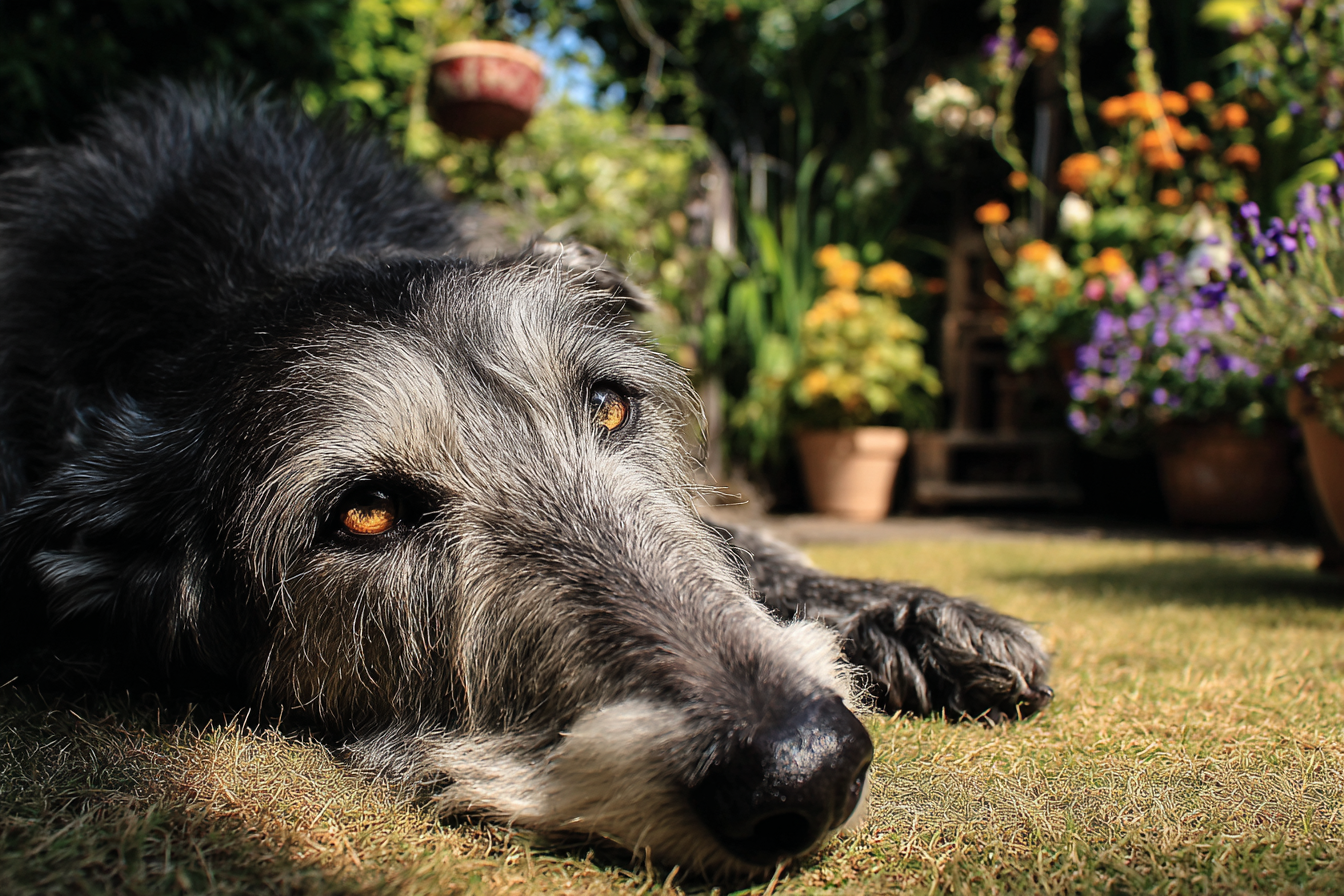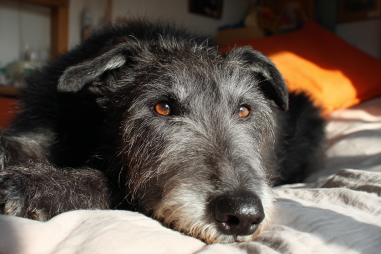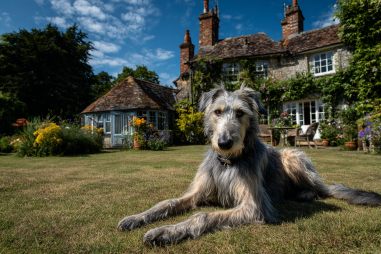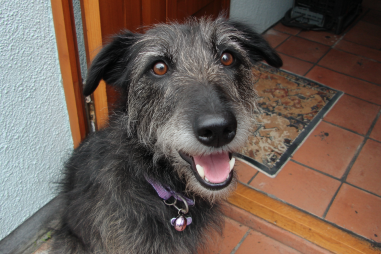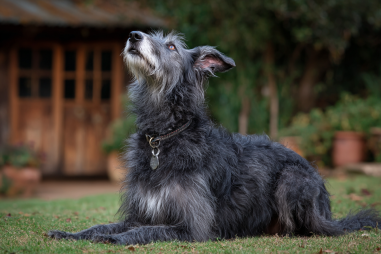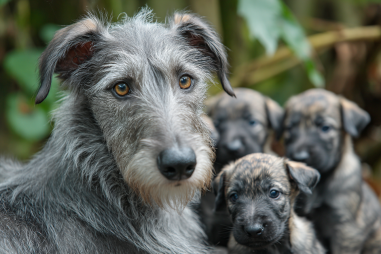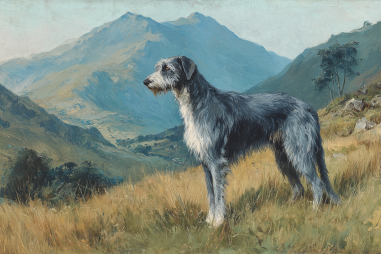The Scottish Deerhound is a majestic and gentle giant known for its grace, loyalty, and charming personality. While these dogs are generally healthy and active, like all breeds, they are susceptible to certain health issues. Understanding these common health problems, recognizing the signs early, and adopting preventative measures can help ensure your Scottish Deerhound leads a long, happy, and comfortable life. Whether you’re a seasoned Deerhound owner or considering becoming one, learning about their health is essential for responsible care.
Common Hereditary Conditions in Scottish Deerhounds
Scottish Deerhounds are a relatively healthy breed, but there are a few hereditary health conditions that prospective and current owners should be aware of. These conditions can often be managed or mitigated with early diagnosis and proper care.
- Cardiomyopathy: This is a disease of the heart muscle that can affect the Deerhound breed. It often develops as the dog ages, leading to an enlarged heart and decreased heart function. Early signs might be subtle but can progress to serious complications if untreated.
- Osteosarcoma: Scottish Deerhounds have a predisposition to bone cancer, particularly osteosarcoma. This malignant tumor typically affects long bones like the legs and can cause lameness or swelling.
- Von Willebrand’s Disease: This hereditary bleeding disorder affects the blood’s ability to clot. While some dogs carry the gene without symptoms, others may experience prolonged bleeding from injuries or surgeries.
- Hypothyroidism: A condition where the thyroid gland underperforms, leading to symptoms such as weight gain, lethargy, and skin issues. This condition is common in many dog breeds, including Deerhounds.
- Bloat (Gastric Dilatation-Volvulus): Although not hereditary, Deerhounds are at increased risk of bloat due to their deep chests. This life-threatening emergency involves the stomach filling with gas and twisting, cutting off blood supply.
Signs and Symptoms to Watch For
Being vigilant about your Scottish Deerhound’s health means knowing the early warning signs of common ailments. If you notice any of the following symptoms, it’s important to consult a veterinarian promptly:
- Unexplained lethargy: A sudden decrease in energy or reluctance to exercise can signal heart issues, hypothyroidism, or other underlying problems.
- Persistent coughing or difficulty breathing: Could indicate heart or respiratory problems.
- Lameness or swelling in the limbs: This might indicate bone cancer or injury.
- Excessive bleeding after cuts or surgery: A potential sign of Von Willebrand’s disease.
- Abdominal distension and restlessness: Sudden swelling or bloating along with signs of distress can suggest bloat, requiring immediate veterinary attention.
- Changes in appetite or weight: Significant weight gain or loss without clear reason may point to metabolic or thyroid issues.
- Skin problems such as hair loss or itching: Sometimes associated with hypothyroidism or allergies.
Preventative Care Recommendations
Good preventative care is the cornerstone of maintaining your Deerhound’s health and catching issues before they progress. Here are several measures to help keep your dog in optimal condition:
- Regular veterinary check-ups: Annual or biannual exams allow your vet to monitor your dog’s health and catch potential problems early.
- Screening for hereditary diseases: Ask your vet about cardiac screening and blood testing for clotting disorders like Von Willebrand’s disease.
- Vaccinations and parasite control: Keep vaccines current and use flea, tick, and heartworm preventatives year-round.
- Weight management: Maintaining a lean body weight reduces stress on joints and the heart.
- Monitor for bloat risk: Feed smaller, more frequent meals instead of one large meal, and avoid vigorous exercise immediately after feeding.
- Dental care: Regular teeth brushing and oral health checks can prevent dental disease, which can affect overall health.
Dietary and Exercise Considerations for Scottish Deerhounds
Nutrition and exercise are critical components in managing the health of Scottish Deerhounds. Their large size and unique metabolism mean that their diet and activity levels must be tailored carefully.
Dietary Needs
Scottish Deerhounds require a balanced diet rich in high-quality proteins and essential nutrients to support their muscle development and overall health. Because they are prone to bloat, feeding smaller meals two to three times a day is advisable rather than one large feeding.
It’s also important to avoid rapid eating, so consider slow feeder bowls if your dog finishes meals too quickly. Supplements such as glucosamine and omega-3 fatty acids may benefit joint health, which is important for a large breed dog. Always consult your vet before introducing supplements.
Exercise Requirements
Despite their size, Scottish Deerhounds are fairly active and enjoy daily walks and playtime. Exercise not only keeps their muscles strong but also supports cardiovascular health and mental well-being. However, avoid over-exercising young Deerhounds before their growth plates have fully closed, as excessive impact activity can contribute to joint issues later on.
Activities like controlled running, hiking, or safe off-leash play in secure areas are excellent ways to keep your Deerhound physically fit without putting undue strain on their growing bodies.
When to Consult Your Veterinarian
Although informed owners can detect many early signs of illness, always err on the side of caution when it comes to your Scottish Deerhound’s health. If you observe any unusual behavior, persistent symptoms, or sudden changes – particularly those listed earlier – a prompt veterinary evaluation is critical.
Whether it’s a routine check-up, vaccination, or addressing concerning signs like respiratory distress, limping, or abnormal bleeding, early intervention is key to managing many health issues. Your vet can provide diagnostics, treatments, and advice tailored specifically for Deerhounds.
Developing a good relationship with your veterinarian and maintaining regular health monitoring is one of the best ways to protect your dog’s longevity and quality of life.
Caring for Your Scottish Deerhound’s Health
Owning a Scottish Deerhound is a rewarding experience, enriched by their unique combination of elegance, affability, and loyalty. Understanding the breed’s specific health concerns and proactively managing their care can greatly enhance their wellbeing. By keeping an eye out for hereditary conditions, recognizing early symptoms, providing balanced nutrition and appropriate exercise, and staying connected with your vet, you’ll help ensure your Deerhound thrives.
These gentle giants may carry some breed-specific risks, but with informed and loving care, they have the potential to live long, joyous lives as treasured family companions.

